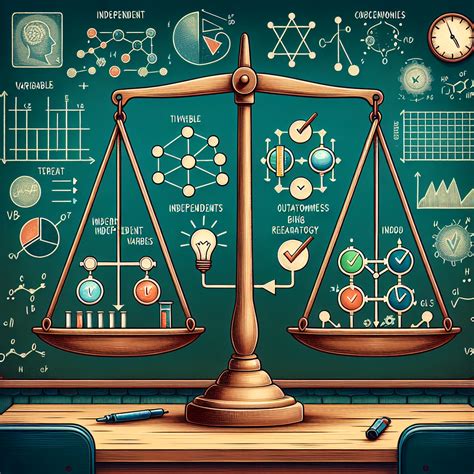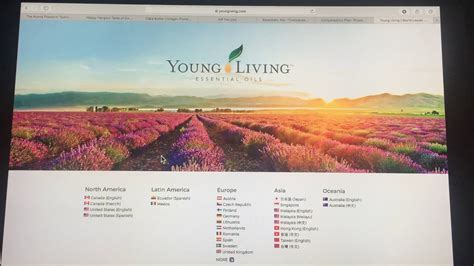When delving into the realm of scientific research, understanding the concept of independent variables is crucial for designing and conducting experiments that yield meaningful and reliable results. An independent variable, often referred to as the predictor variable, is the variable that is manipulated or changed by the researcher to observe its effect on the dependent variable, or the outcome variable. In this guide, we will explore the concept of independent variables in-depth, discuss their importance in research, and provide practical advice on how to identify and manipulate them effectively in experimental designs.
Understanding Independent Variables
At its core, an independent variable is a factor that a researcher intentionally changes or manipulates to see if it has an effect on the outcome or dependent variable. For example, in a study examining the effect of fertilizer on plant growth, the amount of fertilizer applied would be the independent variable because it is the factor being manipulated by the researcher. The growth of the plant, in this case, would be the dependent variable, as it is the outcome being measured in response to the manipulation of the independent variable.
Importance in Research
Independent variables are essential in research for several reasons:
Causality: By manipulating the independent variable, researchers can establish cause-and-effect relationships between the independent variable and the dependent variable. This is fundamental for understanding how changes in one variable can influence another.
Control: Manipulating the independent variable allows researchers to control for other factors that might influence the outcome. This control is crucial for ensuring that any observed effects are due to the manipulation of the independent variable and not other extraneous factors.
Prediction: Understanding the relationship between independent and dependent variables enables researchers to make predictions about future outcomes based on the manipulation of the independent variable.
Identifying Independent Variables
Identifying the independent variable in a study can sometimes be straightforward, but it requires a clear understanding of the research question and the experimental design. Here are some steps to help identify independent variables:
Define the Research Question: Clearly articulate the research question or hypothesis. This will help in identifying what needs to be manipulated to observe the desired effect.
Literature Review: Conduct a thorough review of existing literature to understand what factors have been identified as influential in the context of your study.
Operationalizing Variables: Once potential independent variables are identified, operationalize them. This means defining how these variables will be measured and manipulated within the study.
Manipulating Independent Variables
Manipulating the independent variable involves changing it in a controlled and systematic way to observe its effect on the dependent variable. This manipulation must be done carefully to ensure that:
Only the Independent Variable Changes: Ensure that no other factors that could influence the outcome are changed during the experiment, to maintain internal validity.
Measurement Precision: Ensure that the manipulation of the independent variable and the measurement of the dependent variable are precise and consistent.
Control Groups: Often, including a control group that does not receive the manipulation can provide a baseline to compare the effects of the independent variable.
Common Challenges
Despite their importance, identifying and manipulating independent variables can come with challenges:
Isolation: It can be difficult to isolate the independent variable from other factors that might influence the outcome.
Measurement Error: Errors in measuring the independent variable or the dependent variable can lead to unreliable conclusions.
Ethical Considerations: Manipulating certain independent variables, especially in studies involving human subjects, may raise ethical concerns that must be carefully addressed.
Best Practices for Working with Independent Variables
- Clear Definition: Ensure that the independent variable is clearly defined and operationalized.
- Controlled Manipulation: Manipulate the independent variable in a controlled and systematic manner.
- Randomization: Use randomization to minimize bias and ensure that subjects are assigned to different levels of the independent variable by chance.
- Blinding: Consider blinding participants or researchers to the level of the independent variable being administered to reduce bias.
In conclusion, independent variables are a cornerstone of experimental research, allowing scientists to explore cause-and-effect relationships and make predictions about outcomes based on the manipulation of these variables. By understanding how to identify, manipulate, and analyze independent variables, researchers can design more effective studies that contribute significantly to our knowledge and understanding of the world around us.
What is an example of an independent variable in a psychological study?
+In a psychological study examining the effect of music on cognitive performance, the type of music played (e.g., classical, rock, or silence) would be the independent variable, as it is the factor being manipulated by the researcher to observe its effect on cognitive performance, the dependent variable.
How do researchers ensure that the manipulation of the independent variable is the cause of the observed effect on the dependent variable?
+Researchers use various methods to ensure that the manipulation of the independent variable is the cause of the observed effect, including controlling for other variables, using randomization to assign participants to different levels of the independent variable, and incorporating control groups for comparison.
What is the role of a control group in relation to the independent variable?
+A control group serves as a baseline and does not receive the manipulation of the independent variable. This allows researchers to compare the outcomes between the group that received the manipulation and the group that did not, helping to isolate the effect of the independent variable.
By mastering the concept and manipulation of independent variables, researchers can significantly enhance the validity and reliability of their studies, contributing to a deeper understanding of the complexities of their research topics. Whether in natural sciences, social sciences, or any other field, the careful consideration and manipulation of independent variables are key to unlocking meaningful insights and advancing knowledge.



